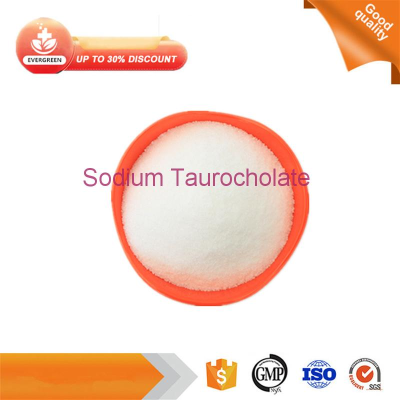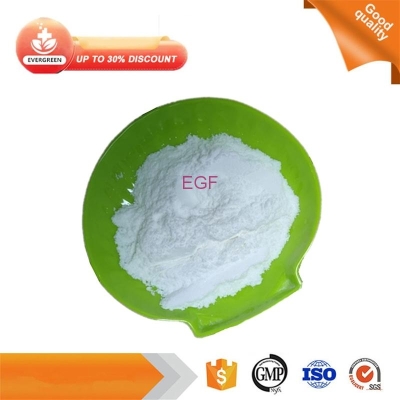-
Categories
-
Pharmaceutical Intermediates
-
Active Pharmaceutical Ingredients
-
Food Additives
- Industrial Coatings
- Agrochemicals
- Dyes and Pigments
- Surfactant
- Flavors and Fragrances
- Chemical Reagents
- Catalyst and Auxiliary
- Natural Products
- Inorganic Chemistry
-
Organic Chemistry
-
Biochemical Engineering
- Analytical Chemistry
- Cosmetic Ingredient
-
Pharmaceutical Intermediates
Promotion
ECHEMI Mall
Wholesale
Weekly Price
Exhibition
News
-
Trade Service
Pancreatic cancer, known as the "king of cancers", often has a poor patient prognosis and is one of the leading causes of
cancer-related death worldwide.
For resectable and border-resectable pancreatic cancers, surgical resection remains one of
the main strategies for radical pancreatic cancer treatment.
Previous studies have shown that adjuvant chemotherapy improves survival benefit
in patients undergoing pancreatic cancer surgery.
In terms of adjuvant chemotherapy regimen selection, the PRODIGE 24/CCTG PA6 clinical trial showed that compared with gemcitabine monotherapy, 5-FU + LV + irinotecan + oxaliplatin (mFOLFIRINOX) regimen significantly improved median disease-free survival (median DFS, 21.
6 months vs.
12.
8 months, P<0.
0001) and median overall survival (median OS, 54.
4 months vs.
35.
0 months, P=0.
003) compared with gemcitabine monotherapy.
。 Based on the results of this study, the mFOLFIRINOX regimen has become the recommended recommended choice
for postoperative adjuvant therapy in patients with pancreatic cancer.
Recently, the investigators released the 5-year final analysis results of the trial in JAMA Oncology (IF:33.
006).
Research background
Trials such as CONKO-001 and ESPAC-4 have shown that adjuvant chemotherapy is indispensable
for improving survival benefit in postoperative patients with pancreatic cancer 。 The multicenter, randomized, phase III PRODIGE 24/CCTG PA6 clinical trial evaluating the mFOLFIRINOX regimen in postoperative pancreatic cancer patients showed that at a median follow-up of 33.
6 months, DFS and OS performance were significantly better than those in the gemcitabine group, with 3-year DFS of 39.
7% and 21.
4%, and 3-year OS of 63.
4% and 48.
6%,
respectively 。 After a longer follow-up, the investigators published the results of a 5-year analysis of the study and analyzed prognostic factors
related to the patient's OS.
Study design
The PRODIGE 24/CCTG PA6 study was conducted in 77 hospitals in France and Canada, and the main inclusion criteria were patients aged 18-79 years, without metastatic disease, with a World Health Organization performance status score of 0 to 1, and good liver and kidney function, who needed to complete R0 or R1 resection
within 12 weeks prior to randomization 。 Patients randomized (1:1) to mFOLFIRINOX (oxaliplatin 85 mg/m²; Calcium folinate 400 mg/m²; irinotecan 150-180 mg/m²; Fluorouracil 2400 mg/m², Q14 D, 12 cycles) or gemcitabine (1000 mg/m², D1, D8 and D15, Q28 D, 6 cycles)
The primary endpoint of the study was DFS, and secondary endpoints included OS, metastasis-free survival, tumor-specific survival, and safety
.
Research results
From April 16, 2012 to October 3, 2016, a total of 493 patients were included in the study, including 247 in the mFOLFIRINOX group; There were 246 cases in the gemcitabine group, and the grouping of the study is shown in Figure 1²
.
Fig.
1 Randomization of patients
Lymphovascular invasion was higher in the mFOLFIRINOX group (73.
7% vs.
63.
1%; P=0.
02), there was no significant difference in
baseline characteristics between the two groups.
(95% CI, 67.
1 to 73.
9), as of 28 June 2021, the median duration of treatment in the mFOLFIRINOX and gemcitabine groups was 24.
6 weeks and 24.
0 weeks
, respectively.
Survival analysis
After a median follow-up of 69.
7 months, disease progression
occurred in 367 patients in the intention-to-treat (ITT) population.
As shown in Figure 2, the median DFS in the mFOLFIRINOX and gemcitabine groups was 21.
4 months and 12.
8 months, respectively (stratified HR = 0.
66; 95% C, 0.
54-0.
82; P<0.
001), and the 5-year DFS rates in the two groups were 26.
1% (95% CI, 20.
5%-32.
1%) and 19.
0% (95%CI, 14.
3%-24.
3%)<b11>, respectively.
Fig.
2 Patient DFS performance
As shown in Figure 3, the median OS in the mFOLFIRINOX and gemcitabine groups was 53.
5 months and 35.
5 months, respectively (stratified HR = 0.
68; 95% CI, 0.
54-0.
85; P<0.
001), and the five-year OS rates in the two groups were 43.
2% (95% CI, 36.
5%-49.
7%) and 31.
4% (95%CI, 25.
5%-37.
5%)<b10>, respectively.
Fig.
3 Patient OS performance
As shown in Figure 4, subgroup analysis found no heterogeneity in the effect of treatment strategies on OS
.
Fig.
4 OS subgroup analysis
The median metastasis-free survival and tumor-specific survival in the mFOLFIRINOX group and the gemcitabine group were 29.
4 months and 17.
7 months, respectively (stratified HR=0.
64; 95%C, 0.
52-0.
80; P<0.
001; Figure 5 left), and median tumor-specific survival was 54.
7 months and 36.
6 months, respectively (stratified HR=0.
65; 95%C, 0.
51-0.
82; P<0.
001; Figure 5 right).
<b10>
Fig.
5 Analysis of metastasis-free survival (left) and tumor-specific survival (right).
Analysis of prognostic factors related to OS
Univariate analysis showed that prognostic factors that were significantly associated with OS improvement included mFOLFIRINOX treatment, tumor location in the pancreas/tail of the pancreas, good tumor differentiation, tumor stage pT1-2, tumor pN0, and low tumor stage (I, IIA, and IIB).
Low nodal positivity (0.
0-0.
20 or 0.
20-0.
40), R0 resection, and unresected veins
.
As shown in Table 1, multivariate analysis showed that the prognostic factors that were significantly associated with the improvement of OS in patients included: patients receiving mFOLFIRINOX treatment, the number of patients enrolled in the hospital ≥ 10, the age of the patients< 70 years<b11>, good tumor differentiation and low
tumor stage.
Table 1 Multivariate analysis of OS prognostic factors
Security analysis
The safety analysis was consistent with previous reports² showing that grade 3 to 4 adverse events were 75.
9% and 52.
9% in the mFOLFIRINOX and gemcitabine groups, respectively, and 12.
2% and 12.
0% in the grade 4 adverse events (Table 2).
The safety profile of the mFOLFIRINOX regimen was lower than that of gemcitabine, but it was generally manageable, and no new safety signals
were found after long-term follow-up.
Table 2 Security analysis
Conclusion of the study
The final analysis of the PRODIGE 24/CCTG PA6 trial showed that mFOLFIRINOX adjuvant chemotherapy significantly prolonged DFS, OS, metastasis-free survival and tumor-specific survival in patients with pancreatic ductal carcinoma with a manageable safety profile compared with gemcitabine regimen, supporting the reliability
of mFOLFIRINOX regimen as standard adjuvant therapy for patients with pancreatic ductal carcinoma.
In addition, the study analyzed the factors affecting OS in patients with pancreatic ductal carcinoma, which helped determine the molecular characteristics of tumors to better select chemotherapy
regimens.
References
1.
Conroy T, Castan F, Lopez A, et al.
Five-Year Outcomes of FOLFIRINOX vs Gemcitabine as Adjuvant Therapy for Pancreatic Cancer: A Randomized Clinical Trial.
JAMA Oncol.
2022; e223829.
doi:10.
1001/jamaoncol.
2022.
38292.
Conroy T, Hammel P, Hebbar M, et al.
FOLFIRINOX or Gemcitabine as Adjuvant Therapy for Pancreatic Cancer.
N Engl J Med.
2018; 379(25):2395-2406.
doi:10.
1056/NEJMoa1809775
Review: Your
Typesetting: Youshi
Execution: Traveler
END






